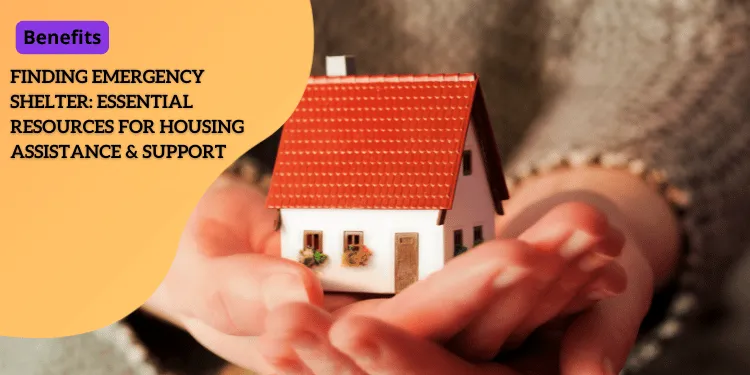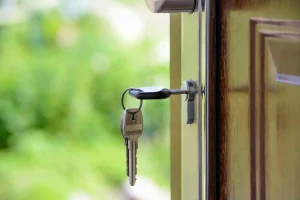Finding Emergency Shelter: Essential Resources for Housing Assistance & Support

Anúncios
If you’re facing a housing crisis, one of the quickest ways to get help is by dialing 211.
This service connects you with essential local social services and emergency housing referrals.
Anúncios
It’s accessible in most parts of the U.S., providing quick access to vital shelter and housing resources.
How to Use 211 for Housing Assistance
When you dial 211, you’ll be connected to an operator who can offer guidance on the available resources in your area.
Anúncios
These operators are trained to handle various emergencies and can direct you to local shelters and social service organizations.
They can also give you information on temporary housing options and other forms of immediate assistance tailored to your specific situation.
 Call if you need shelter
Call if you need shelter
Availability and Benefits of 211 Services
The 211 service is available round the clock in many regions, ensuring help is just a phone call away whenever you need it.
The aim of 211 is not just to provide a directory of services but to offer personalized support based on your emergency needs.
You can gain rapid access to shelters, food resources, and even mental health services through this single point of contact.
This streamlined service can be a lifesaver when you’re in urgent need of support.
Quick Access to Local Shelter and Housing Resources
211 can help identify local shelters that have vacancies and provide details on how to access them.
Whether you need a place to spend the night or are looking for short-term housing solutions until you get back on your feet, 211 can connect you to the necessary resources.
Many local organizations listed through 211 can also assist with ongoing support, helping to ensure you have the assistance needed to move towards a more stable housing situation.
With these immediate emergency resources accessible through a simple phone call, you have a vital lifeline to help you navigate the challenges of homelessness or housing instability.
Taking that first step can open doors to various supportive services designed to provide stability and security.
Merely knowing where and how to reach out in times of crisis can be empowering and life-changing.
Now, let’s explore how programs through the Department of Housing and Urban Development (HUD) can offer both temporary and permanent solutions to your housing needs.
HUD Programs and Support
Overview of HUD Assistance
When facing housing instability, the U.S. Department of Housing and Urban Development (HUD) can be a critical lifeline.
HUD offers an array of programs designed to assist both individuals and families in finding temporary or permanent housing.
Temporary Housing Solutions
HUD provides several programs aimed at helping individuals secure temporary housing.
One prominent resource is the Emergency Solutions Grants (ESG) program.
ESG provides grants to support street outreach, emergency shelter, and other essential services that can help stabilize people in times of crisis.
Through this program, various local agencies receive funding to help you find immediate shelter.
HUD’s website offers a convenient way to search for these resources.
By visiting their HUD Exchange, you can find state-specific information, including lists of emergency shelters and temporary housing options tailored to your location.
 House shelter assistance is for everyone
House shelter assistance is for everyone
Permanent Housing Assistance
For those seeking pathways to permanent housing, HUD offers several programs aimed at long-term stability.
One significant initiative is the Housing Choice Voucher Program, commonly known as Section 8.
This program provides rental subsidies to eligible low-income individuals and families, helping them afford safe and adequate housing in the private market.
Additionally, HUD’s Continuum of Care (CoC) Program is instrumental in addressing homelessness.
CoCs coordinate local resources and services to assist individuals in moving from shelters to permanent housing.
CoCs also offer supportive services like job training and substance abuse treatment to ensure a successful transition.
State-Specific Resources
Whether you need temporary or long-term housing solutions, HUD’s resources are organized to help you navigate these challenging circumstances.
Each state has specific programs and listings that can be accessed through HUD’s website.
For personalized assistance, you can contact a housing counselor, who can provide tailored advice to help you locate the most appropriate housing solutions in your area.
HUD’s resources extend beyond mere listing services; they also serve as a bridge to various forms of assistance that can prevent future homelessness.
By leveraging these programs, you can find stable, sustainable housing solutions to rebuild your life.
Engaging with HUD’s programs is an essential step toward overcoming housing instability.
From immediate shelter to long-term support, HUD offers robust resources designed to fit diverse needs and circumstances.
Leveraging these tools can empower you to find a secure, stable living situation and foster a path to a brighter, more stable future.
Youth-Specific Services
National Runaway Safeline
The National Runaway Safeline is a crucial resource for teens and young people facing homelessness or in difficult situations.
This service provides free, confidential, and non-judgmental support 24 hours a day, ensuring that young people have access to the help they need at any time.
Free Transportation Services
Beyond just offering a listening ear, the National Runaway Safeline extends its support by providing free transportation services.
This ensures that youth can safely return home when possible, or find other stable, secure housing options.
The transportation services are an invaluable component, providing a bridge to safety and stability when the journey might seem impossible otherwise.
Specialized Support
The specialized support offered by the National Runaway Safeline is tailored specifically for teens and young people experiencing homelessness.
The focus is not only on immediate housing needs but also on addressing the root causes of their situations.
By offering resources, guidance, and compassionate assistance, the National Runaway Safeline helps youth navigate their options and make informed decisions.
Transitional support provided by this service includes help with connecting to local shelters, understanding their legal rights, and accessing other youth-specific resources.
These efforts collectively aim at creating a supportive environment where young people can feel safe and hopeful about their futures.
As we continue to explore the landscape of housing assistance and support, we will next delve into resources available for veterans facing housing challenges.
Veterans Housing Assistance
For veterans facing homelessness, the Office of Veterans Affairs (VA) provides a lifeline through specialized programs.
These initiatives are tailored to meet the unique needs of veterans, offering both immediate and long-term housing solutions.
Here are some key resources available to veterans in need:
24/7 Support Hotline
If you’re a veteran experiencing a housing crisis, you can access round-the-clock support by calling 1-877-4AID-VET (1-877-424-3838).
This dedicated hotline offers free and confidential assistance, connecting veterans to vital resources and supportive services aimed at preventing and resolving homelessness.
Specialized Housing Programs
The VA offers a variety of housing programs designed to help veterans maintain stable and secure housing.
These programs include:
- 🏠 HUD-VASH Program: This collaborative program between the VA and the Department of Housing and Urban Development (HUD) combines HUD housing vouchers with VA supportive services. It helps homeless veterans and their families find and sustain permanent housing.
- 🏠 Supportive Services for Veteran Families (SSVF): This program provides assistance to very low-income veteran families who are at risk of becoming homeless or who are already homeless. Services include temporary financial assistance, housing counseling, and connection to community resources.
- 🏠 Grant and Per Diem (GPD) Program: The GPD program funds community agencies that provide services to homeless veterans. These grants support transitional housing and case management services that facilitate the transition from homelessness to permanent housing.
Comprehensive Support Services
Beyond housing, the VA offers a range of supportive services to help veterans achieve stability and independence.
These services may include:
- 📞 Case Management: Personalized support to help veterans navigate housing options, obtain benefits, and connect with employment opportunities.
- 📞 Health Care: Access to medical, mental health, and substance use treatment through VA hospitals and clinics.
- 📞 Education and Training: Programs that provide job training, resume assistance, and educational resources to enhance long-term stability.
These specialized programs and services are crucial in addressing the specific challenges faced by homeless veterans.
By leveraging these resources, veterans can find a pathway to secure and stable housing, rebuild their lives, and achieve lasting self-sufficiency.
The next section will delve into long-term housing solutions, focusing on transitioning from temporary to permanent housing and the resources available to prevent future homelessness.
Long-Term Housing Solutions
Securing long-term housing solutions is crucial for transitioning from temporary shelter to permanent, stable living.
This chapter explores essential resources and steps to ensure a seamless move towards enduring housing stability.
Assistance in Transitioning from Temporary to Permanent Housing
Transitioning from temporary to permanent housing often requires careful planning and support.
Numerous programs are available to aid in this process, focusing on providing stable environments for individuals and families.
Resources like the Department of Housing and Urban Development (HUD) offer both temporary and permanent housing solutions tailored to meet diverse needs.
With the proper guidance, moving from a crisis situation into a permanent home can be a more streamlined experience.
HUD’s extensive network of support includes various state-specific resources and personalized assistance to help individuals locate and secure permanent housing.
Whether you’re currently in a temporary shelter or seeking to prevent a return to homelessness, there are programs designed to support every step of your journey towards stable housing.
Access to Housing Counselors for Personalized Guidance
Personalized guidance from housing counselors can make a significant difference in the journey to secure permanent housing.
These professionals provide invaluable support, helping navigate the complexities of housing options, rental agreements, and financial assistance programs.
Consulting a housing counselor can provide tailored advice and resources specific to your situation.
They can assist with everything from understanding tenant rights to applying for housing grants.
Utilizing the expertise of a housing counselor can ensure access to the most relevant and beneficial resources, helping to pave the way for long-term housing success.
Resources for Preventing Future Homelessness
Preventing future homelessness involves not only securing current housing but also implementing strategies to maintain stability.
Numerous resources are available to offer ongoing support and prevent a return to homelessness.
Programs designed to offer financial education, employment assistance, and access to social services play a critical role in sustaining long-term housing stability.
Proactive measures, such as budgeting workshops and job training programs, equip individuals with the tools needed to maintain their housing.
Additionally, continuous access to supportive services ensures that those at risk have a safety net to fall back on when challenges arise.
By engaging with these preventive resources, individuals can build a more secure and stable future.
Navigating the transition from temporary to permanent housing requires access to a variety of resources and personalized support.
By leveraging the expertise of housing counselors and engaging with preventive resources, you can ensure a stable and secure housing future.




![Capital Gains Tax on Real Estate: What Home Sellers Need to Know [Complete Guide] Capital Gains Tax on Real Estate What Home Sellers Need to Know [Complete Guide]](https://snewdigi.com/wp-content/uploads/2024/12/Capital-Gains-Tax-on-Real-Estate-What-Home-Sellers-Need-to-Know-Complete-Guide-300x150.webp)

